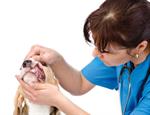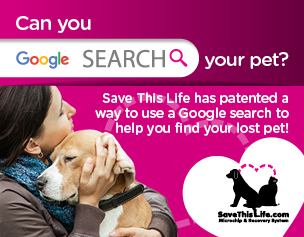Understanding Veterinary Dentistry Offers Options and Opportunities

Preventative oral health care for animals is important. Generally, a routine scaling and polishing to remove tartar build-up will be all the dental care that most animals will ever need. However, if your patient requires more, are you qualified to provide this service?
Veterinary Dentistry Options
Veterinarians have options to further train in areas of general dentistry, endodontics, orthodontics, prosthodontics, and oral surgery. For clients of a veterinarian with this additional training, the benefits are enormous.
Depending upon the need and interest, veterinary dentistry courses and programs have been established to train both veterinarians and veterinary technicians. Classes cover topics such as:
- Small animal dentistry
- Oral surgery
- Dental radiology
- Oral pathology
- Endodontics
- Restorations
Training Methods
Training programs are available through multiple settings and methods such as:
- Interactive classroom lectures
- Online coursework
- Continuing education programs via classroom or online
- Training within individual veterinary facilities
- Wet labs with hands-on training
- Webinars
Mock exam preparation is also offered through some programs to help prepare for veterinary dental specialty boards.
How Dentistry Training Can Help Clients
A report by The American Veterinary Dental Society found that 80 percent of dogs and 70 percent of cats will show indications of oral disease by the time they reach three years of age. Veterinarians who are trained and can offer a Comprehensive Oral Health Assessment and Treatment (COHAT) plan can further provide their clients with diagnosis and treatment options necessary for optimum pet dental care.
Understanding Dental Assessments and Treatments
Understanding veterinary dentistry helps to establish plans to include assessments and treatments in the following eight key areas:
1. Oral Examination
- Examine the mouth, head, and neck area for abnormalities.
- Oral cancer screening.
2. Periodontal Examination
- Inspect gums and each individual tooth by periodontal probe.
- Detect inflammation, infection, bone, and tissue loss.
3. Dental Examination
- Examine surfaces of teeth for abnormalities, fractures, discoloration, and wearing defects.
4. Bite Evaluation
- Check for proper bite alignment.
- Examine for soft tissue trauma from alignment abnormalities.
5. Dental Radiography
- Evaluate teeth below the gum line using dental radiographs.
6. Oral Diagnostic Tests
- Collect tissue samples or bacterial cultures for further testing.
7. Dental Cleaning
- Scale and polish surfaces of the teeth both above and below the gum line.
- Rinse tissues with a disinfecting solution.
- Apply periodontal sealant to slow new plaque accumulation.
8. Home Oral Hygiene Program
- Establish tooth brushing and plaque control regimen for clients to follow at home.
Advanced Dental Care Services
Once completed and reviewed, the information obtained from a dental assessment will help to determine an individualized treatment plan for an animal’s dental care. Based on the findings, additional advanced dental care may be needed. These advanced services may include:
- Fillings and restorations
- Crowns
- Extractions
- Orthodontics
- Periodontal therapy and surgery
- Oral surgery and fracture repair
- Endodontics
Importance of Dental Care Training
The approach to animal dental care has changed significantly. With training, many practices are now able to meet the needs of a client whose pet may present significant oral disease. Veterinarians who recognize and understand alternative options can utilize specific assessments to diagnose, identify, and control issues of periodontal disease.
Need more information on dental care for dogs and cats? Visit our dentistry page!


Working Here
Our team members are encouraged to be the best they can be... at Covetrus we believe we impact one another.
Learn MoreNews & Events
FDA Cautions Pet Owners Not to Feed Texas Tripe Inc. Raw Pet Food Due to Salmonella, Listeria Monocytogenes
The U.S. Food and Drug Administration is cautioning pet owners not to feed their pets any of the Texas Tripe brand raw frozen pet food listed below because several samples of Texas Tripe raw pet food have tested positive for Salmonella and/or L. mono.
Careers
Are you looking for a place to let your talents shine? At Covetrus, we help our practitioner customers better serve their patients and take pride in providing the best customer experience possible. Search our open positions to see our available opportunities.
Newsletter
Stay current with what’s going on with Covetrus, subscribe to receive our newsletter and email communications. Subscribers will receive the latest information in practice management, sales and marketing, animal health, and more.



-3-(1).png?sfvrsn=2d806d73_0)

Leave a comment